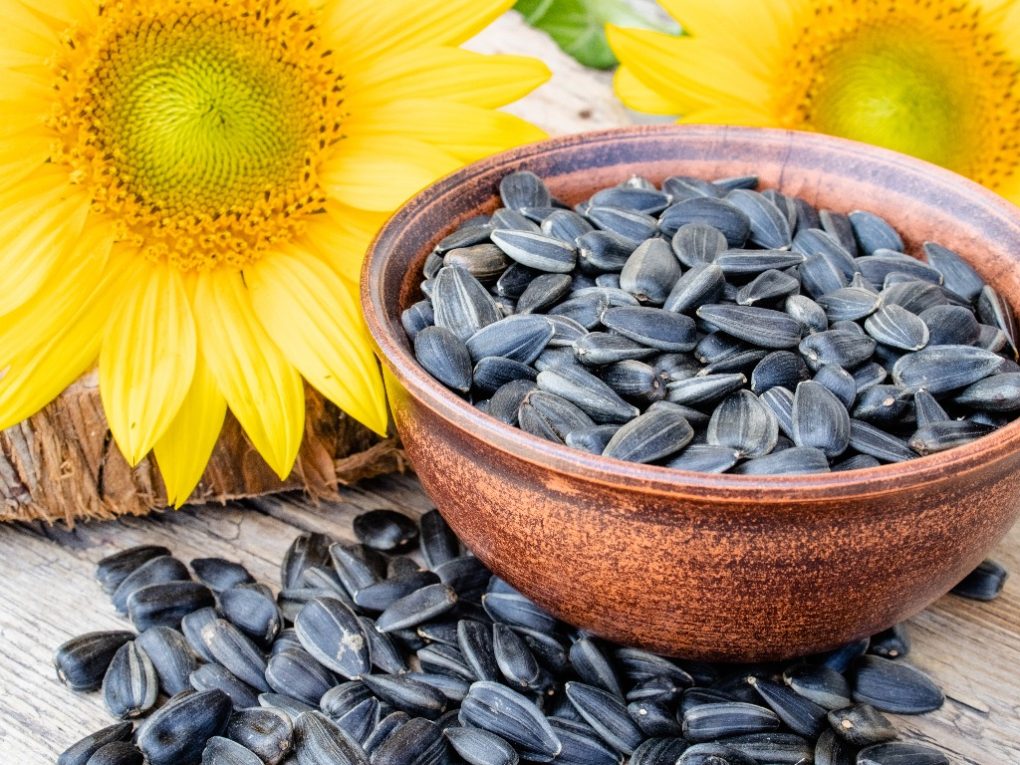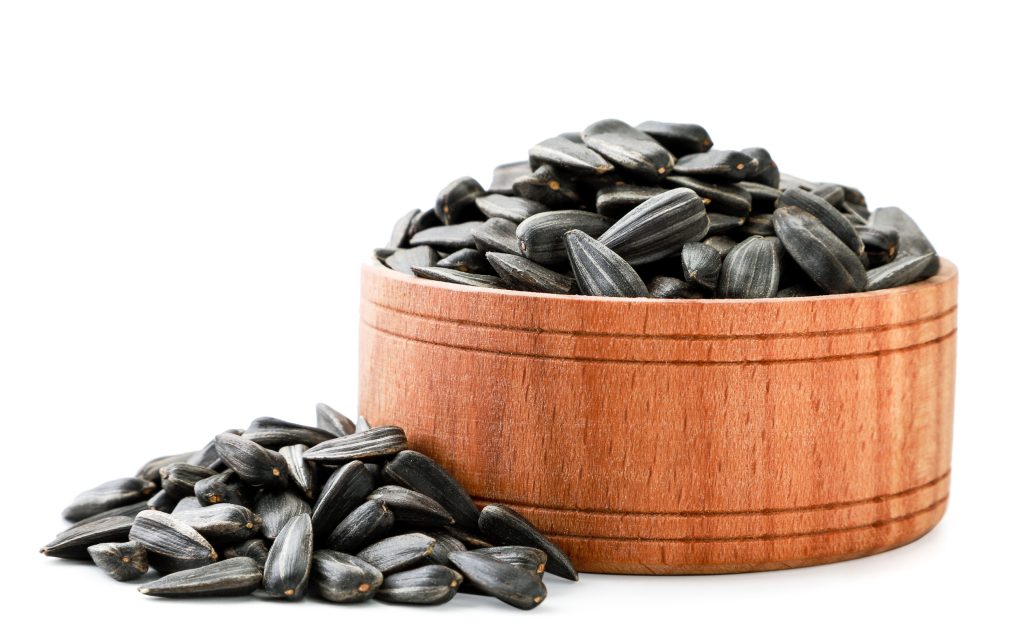Are All Sunflower Seeds Edible: The Risks and Benefits of Eating Sunflower Seeds
Yes, all sunflower seeds are edible. There are two main types of sunflower seeds: those with a hard, black, and white striped shell and those with a soft, solid black shell. Both types of seeds can be eaten, but the hard-shelled seeds are often used for birdseed or oil production, while the soft-shelled seeds are typically eaten as a snack or used in cooking.
However, some seeds may be treated with pesticides or other chemicals that can be harmful if ingested. For example, always purchase sunflower seeds from a reputable source and ensure they are labeled “edible” before consuming them. Additionally, some people may be allergic to sunflower seeds, so it’s important to consult a doctor before consuming them if you have any allergies or medical concerns.

Table of Contents
The Risks of Consuming Sunflower Seeds
As mentioned, most sunflower seeds are safe for humans to eat, but they contain a toxin called aflatoxin, which can harm animals. Aflatoxin contamination of sunflower seeds has been studied, and some samples have been found to contain hundreds of parts per billion.
Aflatoxin is a toxin produced by certain fungi that can grow on crops, including sunflowers. Aflatoxin can harm humans if consumed in large amounts over a long time. It is a potent carcinogen, meaning that it can cause cancer. However, contamination can occur in sunflower seeds under certain conditions, such as when the seeds are stored in warm, humid environments.
Aflatoxin contamination can also occur during the growing and harvesting process if proper hygiene and storage practices are not followed. To minimize the risk of aflatoxin contamination, purchasing sunflower seeds from a reputable source and storing them in a cool, dry place is important. Avoid purchasing sunflower seeds that appear discolored, moldy, or have an off smell.
If you suspect you have been exposed to high aflatoxin levels, seek medical attention immediately. Symptoms of aflatoxin poisoning can include nausea, vomiting, abdominal pain, and liver damage. However, it’s important to note that while aflatoxin contamination in sunflower seeds is rare, it is still important to take precautions to ensure that the seeds you consume are safe and free.
Health Benefits From Sunflower Seeds
Sunflower seeds are a nutritious and healthy snack that offers health benefits when eaten in moderation as part of a balanced diet. Here are some of the health benefits of eating sunflower seeds.

Promote Heart Health
Sunflower seeds are high in monounsaturated and polyunsaturated fats, which can help reduce LDL or bad cholesterol levels in the blood. High levels of LDL cholesterol can cause the development of heart disease. They are also a good source of vitamin E, an antioxidant that helps to protect cells from damage and reduce inflammation. Inflammation can contribute to the development of heart disease.
These seeds are a good source of magnesium, a mineral that can help to lower blood pressure. High blood pressure is a risk factor for heart disease. Sunflower seeds contain compounds called phytosterols, which have anti-inflammatory properties, which helps, given that inflammation is a risk factor for heart disease.
In addition, sunflower seeds contain a compound called arginine, which can help improve blood vessels’ health and promote healthy blood flow. This can reduce the risk of heart disease.
Boost Immunity
Sunflower seeds can help to boost immunity because they are a good source of vitamin E, a powerful antioxidant that helps to protect cells from damage and support immune function. They also contain zinc, a mineral that is key to immune function. In addition, zinc helps to support the development and function of immune cells and can help to reduce the risk and severity of infections.
As mentioned, sunflower seeds contain compounds called phytosterols, which have anti-inflammatory properties that can help to reduce inflammation. Chronic inflammation can weaken the immune system and increase the risk of infection. Sunflower seeds are a good source of other important nutrients, including B vitamins and magnesium, that affect immune function and overall health.
Improve Digestion
Sunflower seeds can help to improve digestion in several ways, including:
- Providing dietary fiber: Sunflower seeds are a good source of dietary fiber, which can help to promote regularity, prevent constipation, and support the growth of beneficial gut bacteria. Fiber also helps to keep you fuller for longer, which can help reduce overeating and promote healthy digestion.
- Promoting gut motility: The fiber in sunflower seeds can help promote healthy gut motility or food movement through the digestive system. This can prevent constipation and other digestive issues.
- Reducing inflammation: Chronic inflammation in the gut can contribute to digestive issues such as irritable bowel syndrome (IBS). Sunflower seeds help promote digestive health through their phytosterols, which have anti-inflammatory properties that can help to reduce inflammation in the gut.
- Supporting gut microbiome: The fiber and other nutrients in sunflower seeds can help to support a healthy gut microbiome, which is important for digestion and overall health.

Support Healthy Bones
Sunflower seeds are a good source of calcium, which is important for building and maintaining strong bones. Calcium is a mineral that makes up the structural component of bones and teeth and helps to prevent osteoporosis. They are also a source of magnesium, which works with calcium to build and maintain healthy bones. In addition, magnesium helps to regulate calcium levels in the body and promotes bone density.
In addition, sunflower seeds are a good source of phosphorus, another mineral that plays a key role in bone health. Phosphorus is an important component of bone minerals and helps to make bones strong and resistant to fractures. In addition, sunflower seeds contain vitamin E, which has been shown to improve vitamin D absorption, a nutrient that helps the body in calcium absorption and promote bone growth.
May Help Regulate Blood Sugar
Sunflower seeds can help regulate blood sugar levels by providing fiber, which can help slow sugar absorption into the bloodstream and prevent blood sugar spikes. Fiber also helps to keep you fuller for longer, which can help reduce overeating and promote healthy blood sugar levels.
As previously discussed, sunflower seeds are a good source of healthy fats, including monounsaturated and polyunsaturated fats, which can help to improve insulin sensitivity and regulate blood sugar levels. In addition, its protein levels can also help stabilize blood sugar levels and prevent blood sugar spikes.
Sunflower seeds are a good source of magnesium, a mineral shown to help regulate blood sugar levels and improve insulin sensitivity. Also, chronic inflammation can contribute to insulin resistance and impaired blood sugar regulation, which is where the anti-inflammatory properties of sunflower seeds can help.
